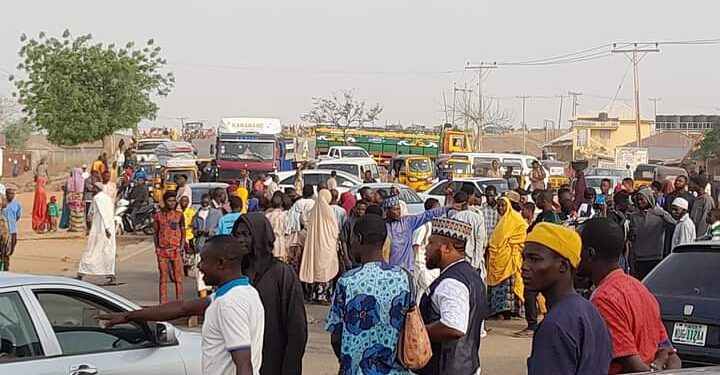The Christian Association of Nigerians in the 19 Northern States and Abuja has expressed deep concern over the harsh economic conditions prevailing in the country, stating that the suffering has become unbearable for ordinary Nigerians. This follows a similar expression of concern by the Sultan of Sokoto-led Jama’atu Nasril Islam, urging both federal and state governments to address the economic hardship that has triggered protests.
Angry youths and women had taken to the streets in Minna, Kano, and Ondo, protesting the rising cost of living. In Niger, women blocked the Minna-Bida Road, demanding intervention to alleviate ‘hunger in the land.’ The protests faced resistance from security forces, with tear gas and arrests employed to suppress the demonstrations.
In response to the escalating economic challenges and security threats, the Northern Christian Association, through its Secretary-General, Elder Sunday Oibe, called on the Federal Government to urgently intervene. The organization highlighted the increasing cost of food, transportation, goods, and services, which has made life difficult for many Nigerians. The statement also emphasized the impact of power supply issues on small businesses and the weakening purchasing power due to the declining value of the naira.
The Christian body expressed sadness over ongoing attacks in Plateau State, calling for decisive action to halt the killings not only in Plateau but across the country. The statement, titled “The Federal Government should urgently address the escalating insecurity and hunger in the country,” stressed the need for justice in addressing the insecurity, ensuring that perpetrators and sponsors are brought to book.
The Northern Christian Association urged all levels of government to support security agencies and called on Nigerians to cooperate with and pray for the security personnel combating criminal elements. Additionally, the statement criticized regional groups such as the Arewa Consultative Forum, the Northern Elders Forum, and some Northern Senators for opposing the government’s plan to relocate certain departments from Abuja to Lagos. The organization labeled such opposition as introducing ethnic and regional sentiments into a policy meant to streamline operations and enhance efficiency while reducing costs.
























